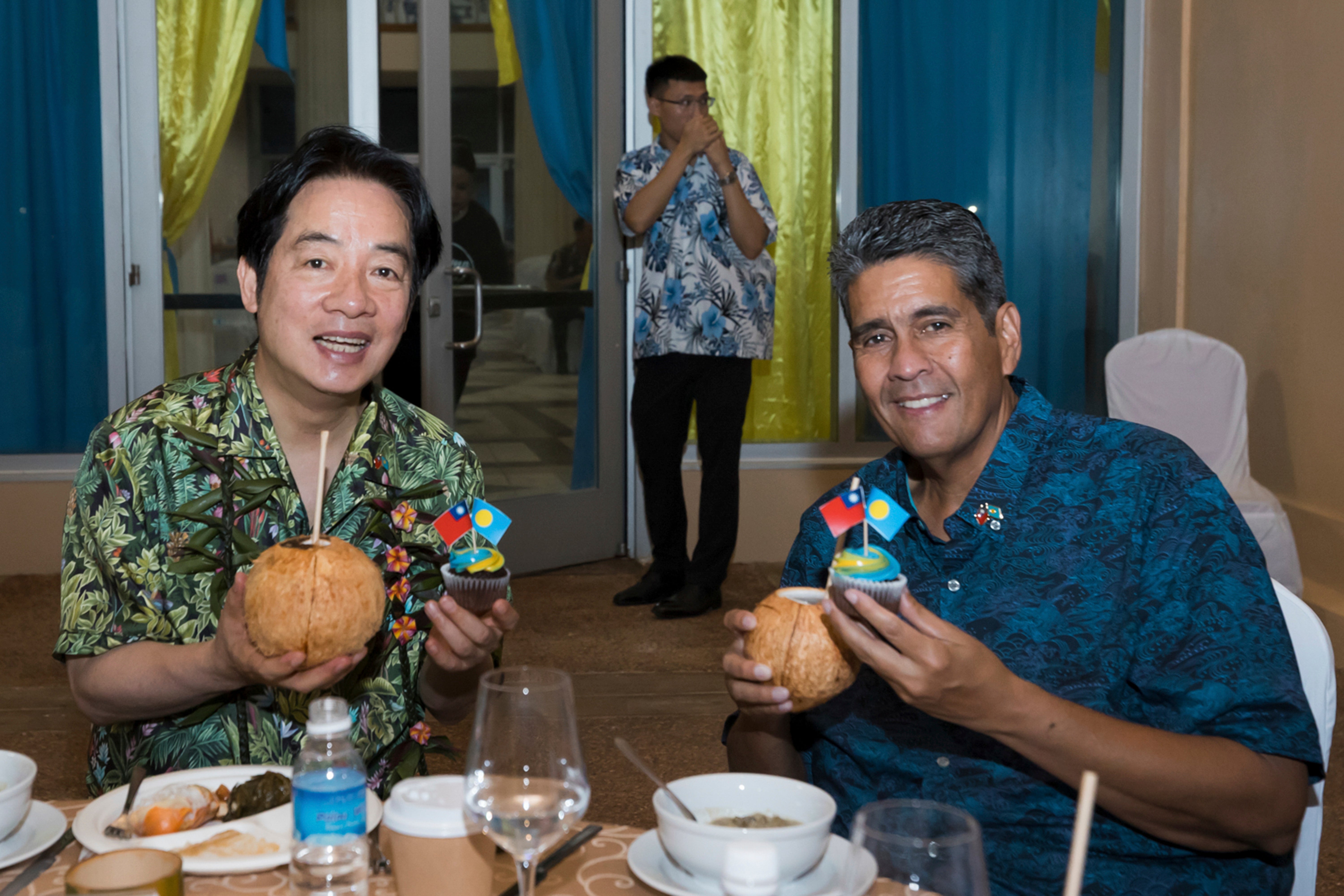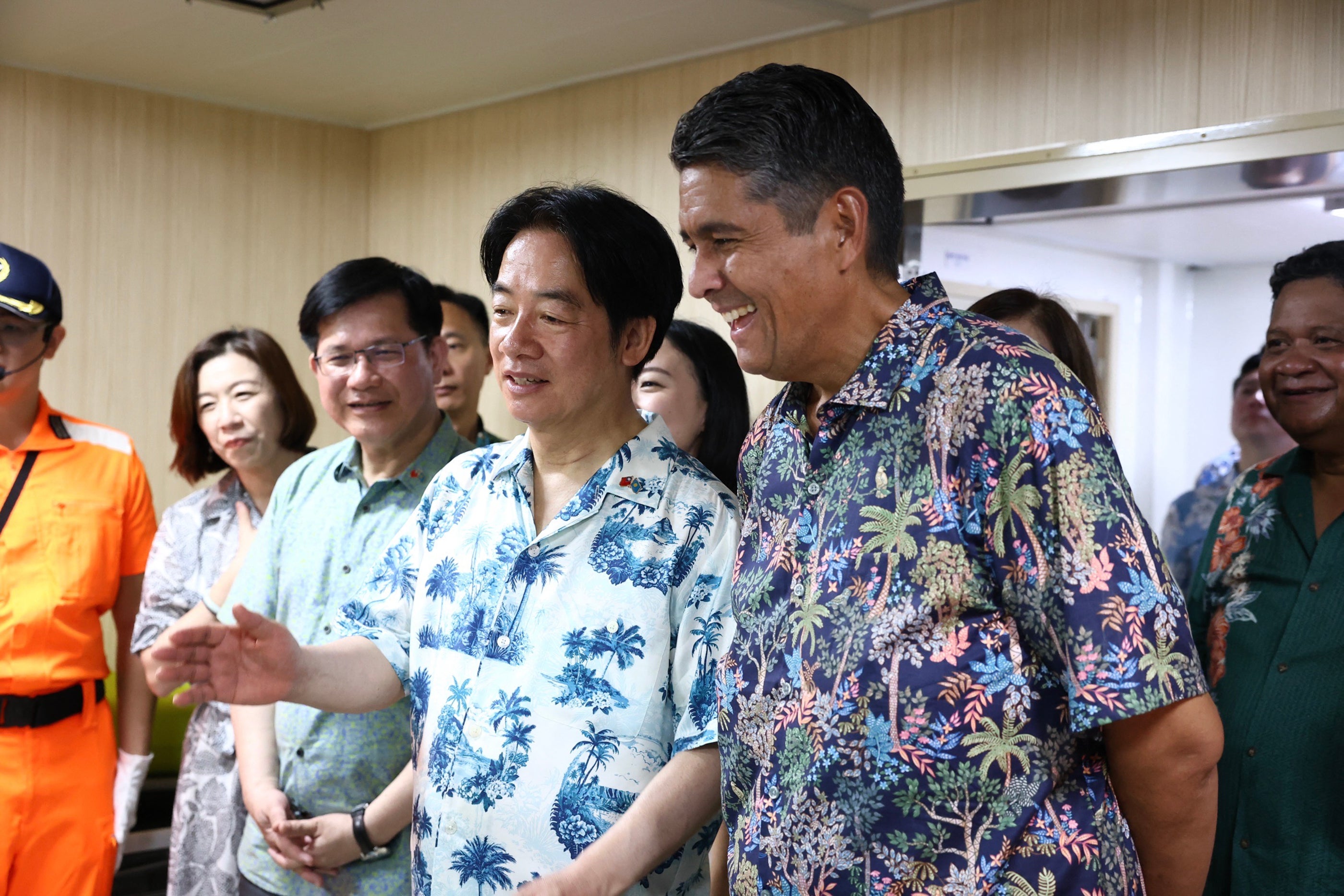Taiwan’s president urges China to ‘open its arms’ amid rising tensions
Lai Ching Te criticises Beijing’s military activity around island as Chinese sanctions target US firms over arms sales to Taipei
Your support helps us to tell the story
From reproductive rights to climate change to Big Tech, The Independent is on the ground when the story is developing. Whether it's investigating the financials of Elon Musk's pro-Trump PAC or producing our latest documentary, 'The A Word', which shines a light on the American women fighting for reproductive rights, we know how important it is to parse out the facts from the messaging.
At such a critical moment in US history, we need reporters on the ground. Your donation allows us to keep sending journalists to speak to both sides of the story.
The Independent is trusted by Americans across the entire political spectrum. And unlike many other quality news outlets, we choose not to lock Americans out of our reporting and analysis with paywalls. We believe quality journalism should be available to everyone, paid for by those who can afford it.
Your support makes all the difference.Taiwanese president Lai Ching Te has urged China to abandon its confrontational stance and embrace dialogue, calling on Beijing to “open its arms rather than raise its fists”.
The remarks, delivered in Palau on Friday to conclude his Pacific diplomatic tour, came amid speculation that China could conduct military drills around Taiwan.
The visit, Mr Lai’s first overseas since assuming office in May, underscored Taiwan’s efforts to strengthen ties with its handful of allies in the face of growing Chinese pressure.
Addressing speculation of Chinese military activity, Mr Lai said: “No matter how many military exercises and warships and aircraft are used to coerce neighbouring countries, they will not be able to win the respect of any country.”
Mr Lai’s trip to the small Pacific nations of Marshall Islands, Tuvalu and Palau, and brief stopovers in the American territories of Hawaii and Guam, has drawn a sharp rebuke from China. The visit, which included discussions with US congressional leaders, is viewed by Beijing as affront to its claims over the island.

The Chinese foreign ministry condemned the US for facilitating Mr Lai’s transit and accused Taiwan of conducting “separatist activities” under the guise of diplomacy.
“Lai Ching Te and the DPP authorities have been engaging in Taiwan independence activities under various guises,” a ministry spokesperson, Lin Jian, said, referring to the president’s political party.
“No matter what they say or do, they will never change the fact that Taiwan is part of China.”
Beijing reiterated its claim over the island, insisting that reunification was inevitable and warning against attempts to solicit foreign support for independence.

In a related development, China imposed sanctions on 13 US companies and six executives on Thursday in response to a $385m American arms deal with Taiwan.
The targeted entities include Teledyne Brown Engineering and Brinc Drones, and executives from Raytheon and Bae Systems.
The sanctions freeze their assets in China, prohibit their entry into the country, and disallow Chinese entities from engaging with them.
Beijing has described the arms sale as a violation of its sovereignty and a threat to its territorial integrity.
Mr Lai’s trip also highlighted the growing challenge Taiwan faces in maintaining its dwindling diplomatic alliances. The island has seen several allies switch over to Beijing in recent years, reflecting China’s increasing economic and diplomatic heft on the global stage that enables it to isolate Taiwan.
In spite of these challenges, Mr Lai expressed optimism about Taiwan’s future and its partnership with the US , including the incoming administration.
“Taiwan is confident that it will deepen cooperation with the new government,” he said, “and contribute more to regional stability and peace.”
He underscored the importance of democratic countries standing together to counter authoritarian regimes, pointing to military collaborations between China, Russia, and North Korea as a growing threat.
As Taiwan continues to resist Beijing’s efforts to assert control, Mr Lai’s call for restraint and dialogue highlights the escalating tensions in the region. His remarks come at a time of significant geopolitical tension, with Taiwan caught in the midst of a power struggle between China and the US over influence in the Indo-Pacific.
Additional reporting by agencies.

Join our commenting forum
Join thought-provoking conversations, follow other Independent readers and see their replies
Comments